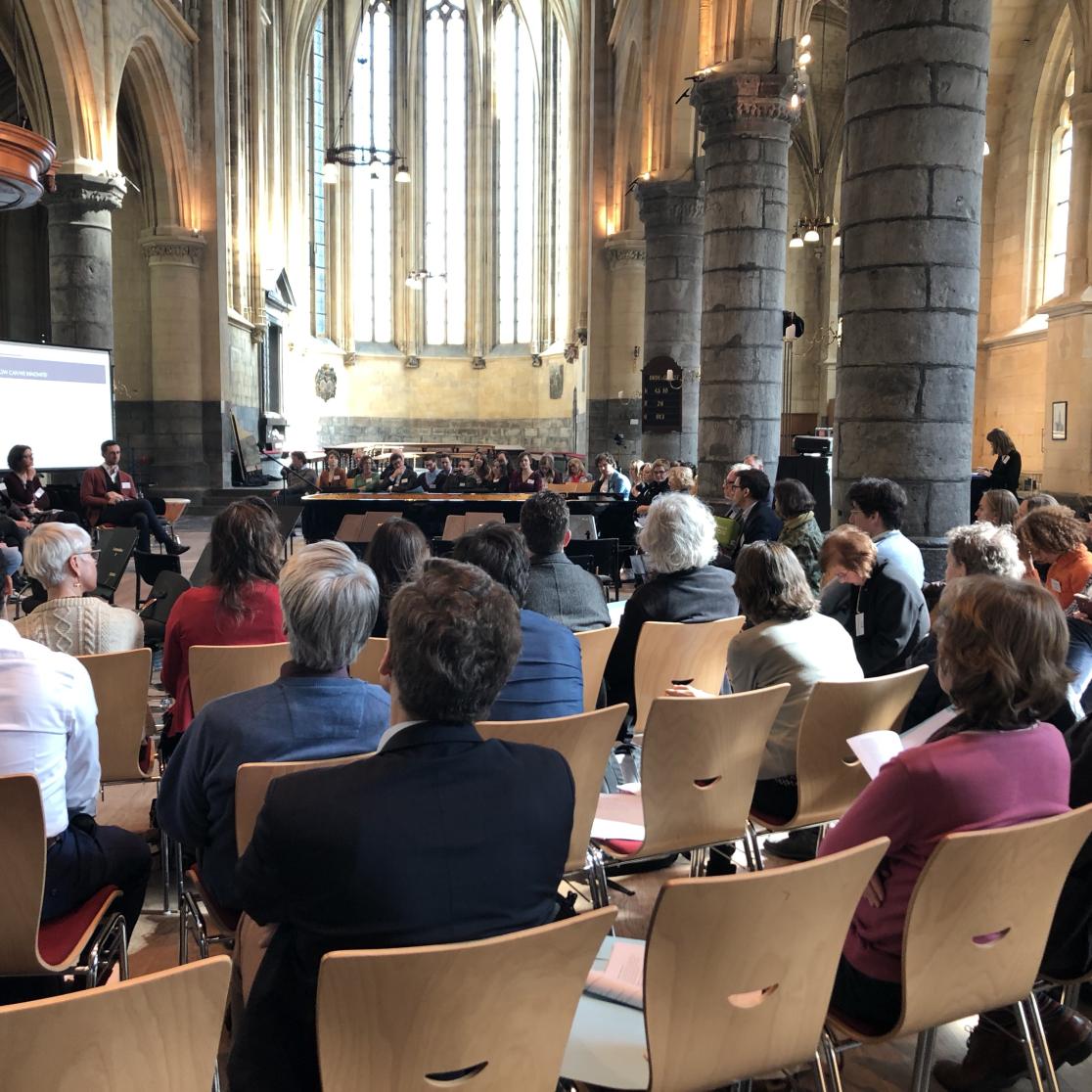MCICM Symposium “Rehearsing Orchestral Innovation” Addressed Classical Music Innovation
The first symposium hosted by the Maastricht Centre for the Innovation of Classical Music (MCICM) was held in Maastricht on March 29 and 30. Throughout the two-day event, international experts from different fields discussed possibilities for classical music innovation.
The first day of the event at the St Jan Church in the heart of Maastricht was kicked off by Ger Koopmans, Regional Minister of Culture of the Limburg Province, and Prof. Peter Peters, director of MCICM with an introduction of the centre, the plans for the future and the important role the province of Limburg plays.
The first panel titled “How can we innovate?” was moderated by Stephan Rosu, director of philharmonie zuidnederland, and featured experts in different fields that discussed chances and challenges when it comes to innovating orchestral. After the panel, Paulo de Assis led philharmonie zuidnederland in an experimental rehearsal of the piano version of Beethoven’s Violin Concerto. Throughout this experiment, the discussion with the audience brought to light different visions on the music and how it can be performed.
The first day continued with Prof. Peter Peter’s inaugural lectured titled “Unfinished Symphonies” at the Maastricht University Aula. In this lecture, he reflected on what it means to make, perform, listen and give value to music, on different concepts of musical works, and on the music rehearsal as the typical situation of musical innovation.
Conservatorium Maastricht hosted the evening program with the interdisciplinary module “Music in the Making” enriched with a presentation from musician and lecturer Inge Pasmans and Imogen Eve, MCICM’s musician researcher. Thirteen musicians from the conservatory presented their original compositions and engaged the audience in a discussion of their music.
The second day took place at the Conservatorium Maastricht. The morning started with a workshop where participants explored conservation and transmission strategies used at Tate Modern and discussed how these could be useful in classical music. Joachim Junghanss, director of the Conservatorium Maastricht, moderated the last panel on social relevance and musical citizenship. The symposium concluded with MCICM’s own researchers sharing examples of a collaborative practice to become attentive listeners and, afterwards, closing comments from Prof Peter Peters.
The first MCICM symposium proved to be an enriching event that brought together experts from all over Europe to discuss and enrich each other’s ideas and work. We look forward to the next MCICM symposium.

Also read
-
Veldkrant Geuldal
We are happy to share the publication of the Veldkrant Geuldal. Over beheertwijfel in een veranderend landschap. The veldkrant was written by Claartje Rasterhoff and Christian Ernsten, in collaboration with Erik Wong and Thijs de Zeeuw, and published by MACCH in October 2025.

-
Anna de Jong Successfully Defends Her PhD
It is with great pleasure that we announce that MACCH member Anna de Jong successfully defended her PhD on June 24, 2025.
-
Book launch and professorship Anna Harris: The Matter of Hospitals
Hospitals are often seen through the lens of urgency, care, and crisis – but what about the materials that make them work?
